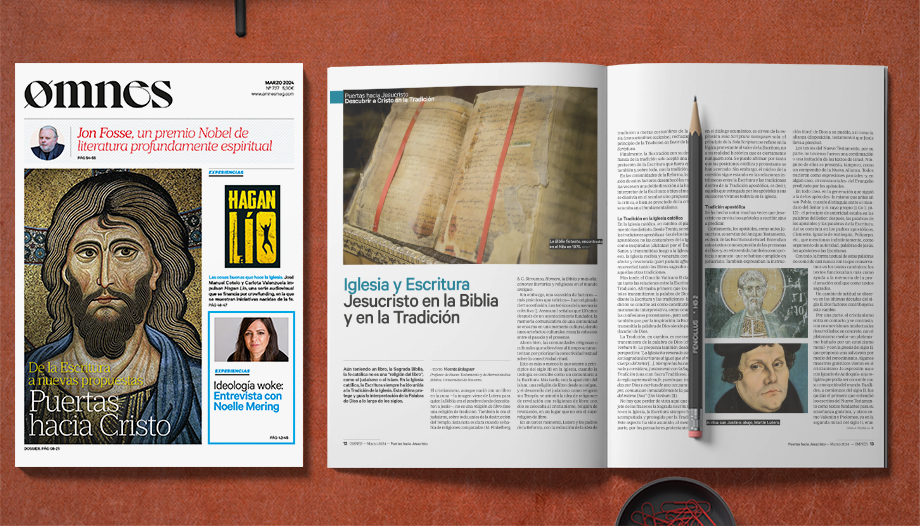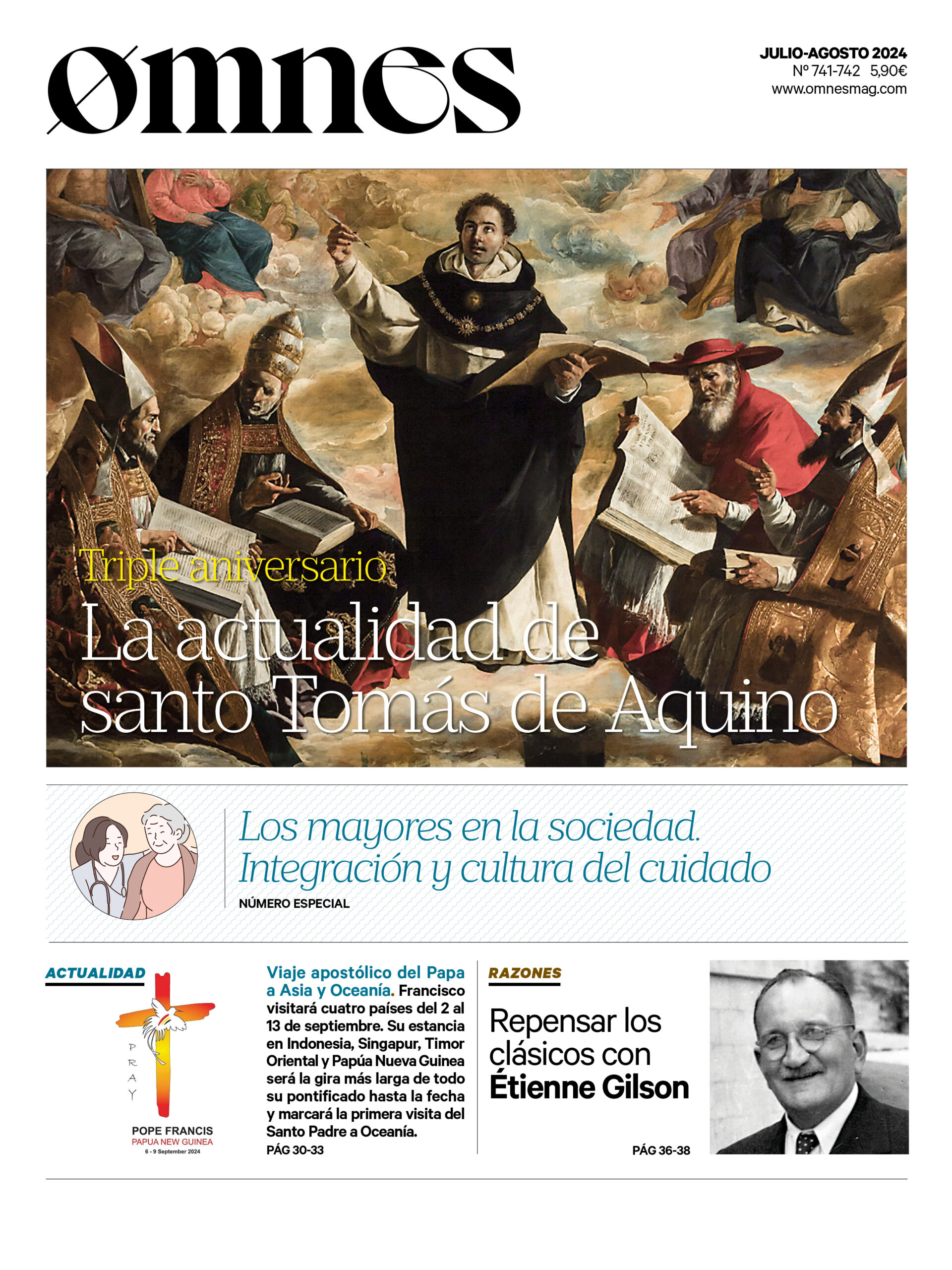In recent years, thanks, among other things, to the irruption of new communication formats, audiovisual projects that approach Jesus Christ through podcasts, series, films or ebooks have multiplied. They are new doors to the knowledge of Jesus Christ and that update the reading of the Bible, the understanding of the scriptures or prayer.
This theme, Christ, is the theme of the March 2024 issue of Omnes magazine, a month in which Catholics celebrate the mysteries of the passion, death and resurrection of Christ.
The doors to Christ
The dossier has two valuable articles, written by theologians and professors Francisco Varo and Vicente Balaguer, in which the reader approaches Christ through the stories of the Old and New Testament and, on the other hand, the treasure of the Tradition of the Catholic Church in the path of understanding the faith and the history of Salvation.
The dossier is completed with other informative articles: a review of some of the archaeological finds in the Holy Land related to places that appear in the Gospel and that confirm the biblical texts, as well as the biblical iconography present in different works of art that visually unite the Old and New Testaments to show their central theme: Jesus Christ.
This dossier also focuses on some of the latest proposals: ebooks, podcasts, series or films, which have been appearing in recent years around the figure of Christ. A reality that highlights the perennial relevance of the figure and the message of Christian salvation and the new ways of approaching it, adapting it to the sensibility and the current media.
Youth and fraternity
Our editor in Rome, Giovanni Tridente, brings readers the results of a worldwide survey that examined the values, hopes and religious inclinations of young people between the ages of 18 and 29 in eight countries. The study, carried out by the Pontifical Pontifical
University of the Holy Cross, in collaboration with seven other universities and the Spanish agency GAD3, which is part of a project to continuously listen to the expectations of young people.
The Pope's audiences and messages during the month of February are the focus of this month's Teachings in which Ramiro Pellitero puts the spotlight on several of the issues that the pontiff has brought to the forefront of his interest: the importance of restoring the dignity of the person in the fields of communication and the challenges posed by the use of artificial intelligence.
The fifth anniversary of the signing of the Document on Human Fraternity, celebrated at the beginning of February, is the theme of the World section of this magazine, which highlights how, five years after this historic document, interreligious collaboration and dialogue continue to be one of the main challenges facing the Church at all levels.
Kant and Gregory the Great
The Reasons section opens with an interesting commentary on the three great episodes narrated in the Gospel of John during Lent: the dialogue with the Samaritan woman, the healing of the man born blind and the Resurrection of Lazarus.
For his part, Juan Luis Lorda focuses his collaboration on the figure of Emmanuel Kant who, in Lorda's opinion, is "the modern philosopher who has thought about and discussed the most issues, and who has had an immense echo of reactive stimulus, sometimes positive, in Catholic thought".
Woke ideology and the latest Nobel Prize in Literature
The woke ideology, its roots, its influence on today's culture and the position of the Church in the face of this cultural movement are the focus of an interesting interview with Noelle Mering, author of "Woke Dogma: A Christian Response to Fashionable Ideology," which can be read in this issue.
In addition, the Culture section brings the latest Nobel Prize for Literature, the Norwegian Jon Fosse. Fosse, a complex and almost unknown author, is a particularly attractive figure for those who believe that literature can bring us closer to God.
The content of the magazine for the month of March 2024 is available in its digital version (pdf) for subscribers of the digital and print versions.
In the next few days, it will also be delivered to the usual address of those who have the subscription printed.












